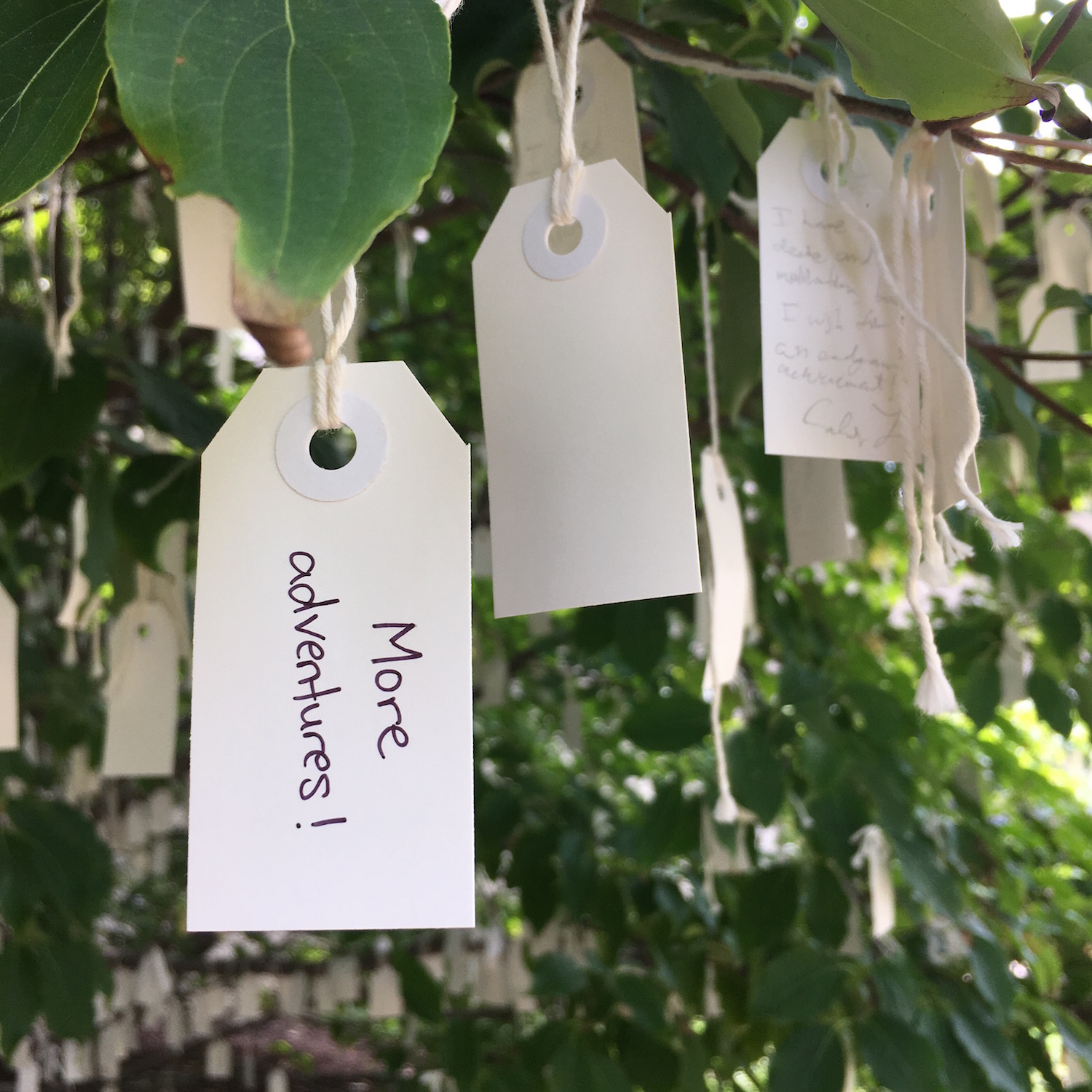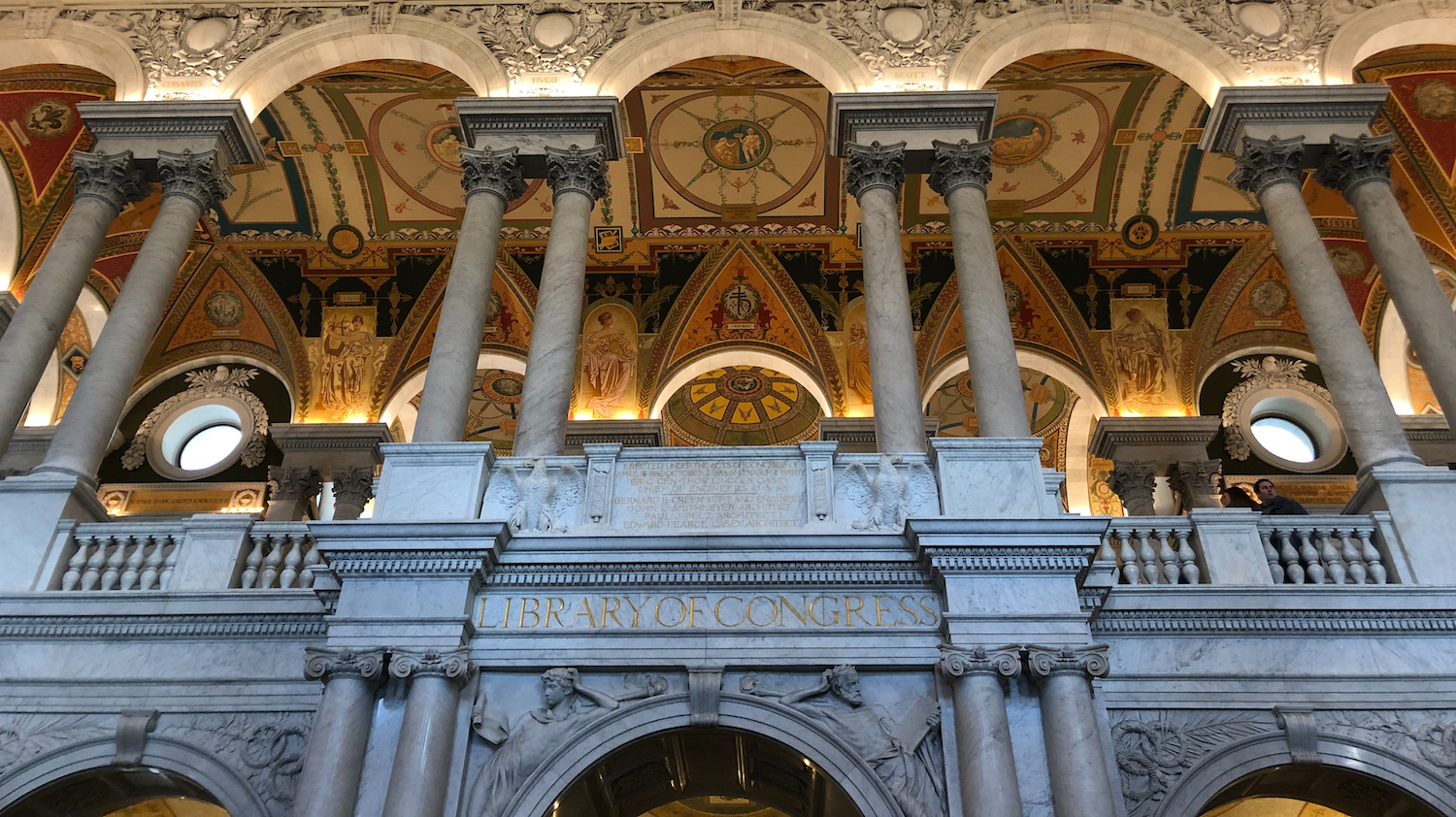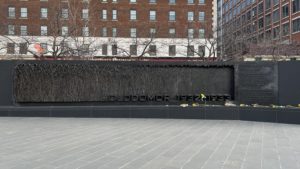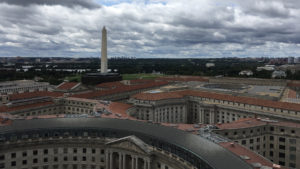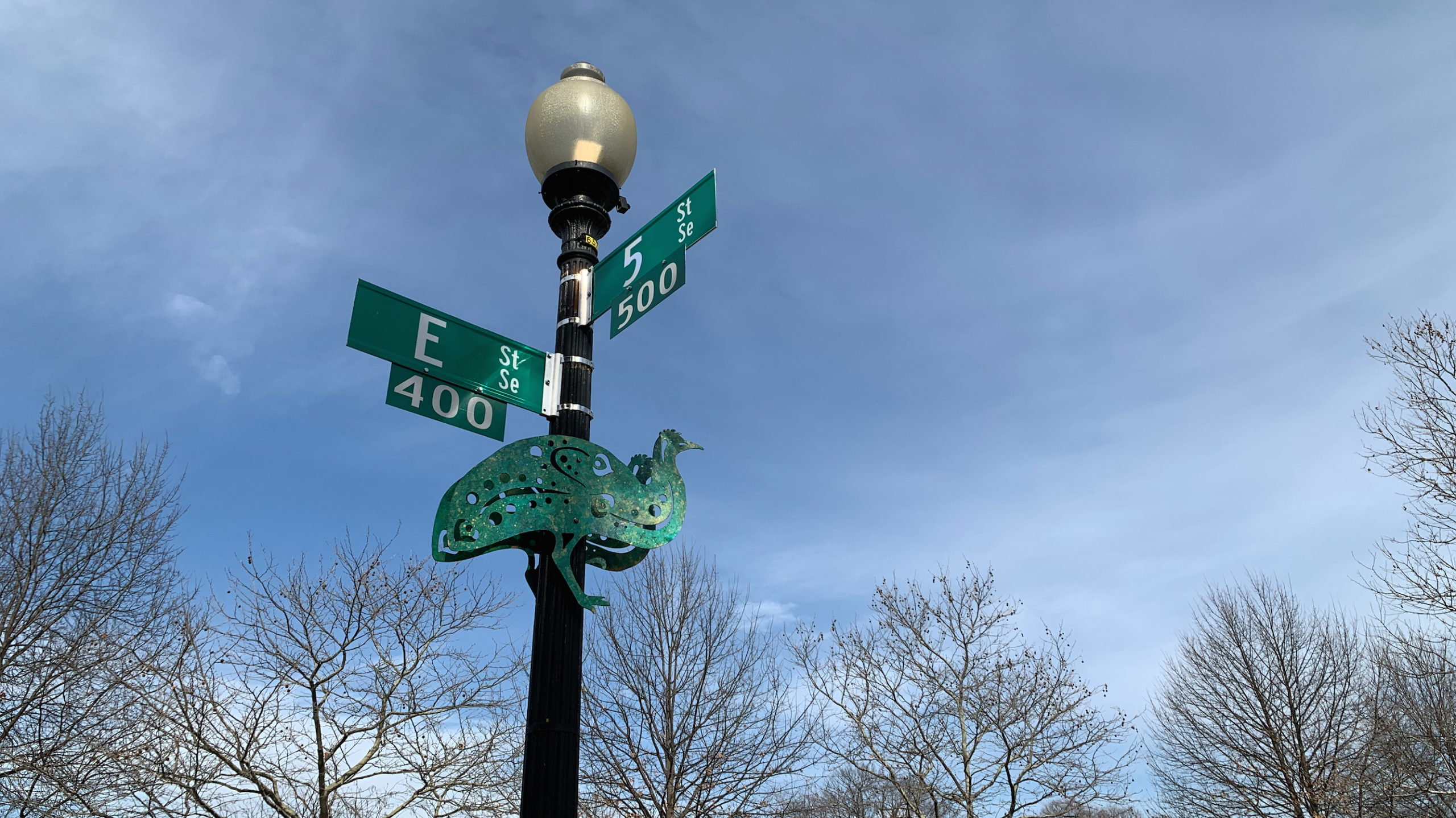Library of Congress
The Library of Congress is the research library for the United States Congress and the national library of the United States
The Library of Congress has the distinction of being the largest library in the world with millions of items in its collection, including books, maps, recordings, photographs, and newspapers. It is a functional research library serving the United States Congress and academic researchers from around the world, and the main building is an ornate tribute to knowledge and learning.
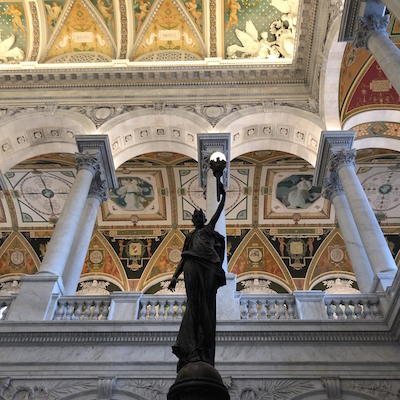
A congressional library was first approved in 1800, and the small collection of books was housed in the Capitol building. This library was destroyed in 1814 when the British set fire to the Capitol, White House, and other buildings during the Burning of Washington invasion. Thomas Jefferson then sold his private collection of books to the Library of Congress to reestablish operations. After the Civil War, the Library of Congress came to be viewed as the nation’s library, and its comprehensive collection became a symbol of democracy. Copyright law began requiring publishers and authors to submit a copy of their work to the Library of Congress in order to receive copyright protection, which helped grow the library’s collection. Today the library collection can be used by any academic researcher after applying for a library card.
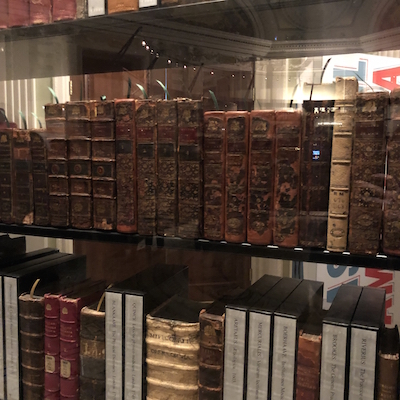
The Jefferson Building of the Library of Congress was the first building constructed to house the library’s collection and staff. It opened in 1897, but was not named for Thomas Jefferson until 1980. While there are now four buildings that make up the Library of Congress, the Jefferson Building is the only one that offers tours.
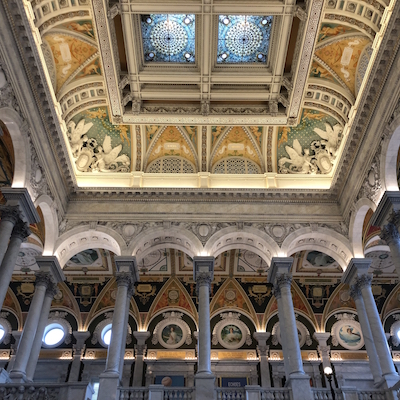
More than 50 American painters and sculptors were selected to decorate the interior and exterior of the Jefferson Building. The Great Hall is the centerpiece of the building, with paintings, sculptures, mosaics, and stained glass adorning the ceiling and walls. Many of these are inspired by literature, culture, and the quest for learning. It’s a breathtaking space worth spending time in to take in all the details and appreciate the craftsmanship that went into creating it. Passing under the arch on the first floor, you can also see the Library of Congress’ copy of the Gutenberg Bible, which is on permanent display.
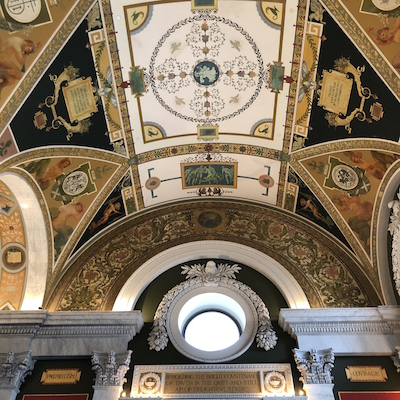
While visitors are not able to enter the Main Reading Room unless they are conducting research, a stairwell from the second floor of the Great Hall leads to a viewing area offering a peek at the gorgeous dome above as well as the desks forming the “circle of knowledge” where researchers can use the library’s collection. On your way back down the stairs, pause on the landing to take in the mosaic of Minerva, the Roman goddess of wisdom.
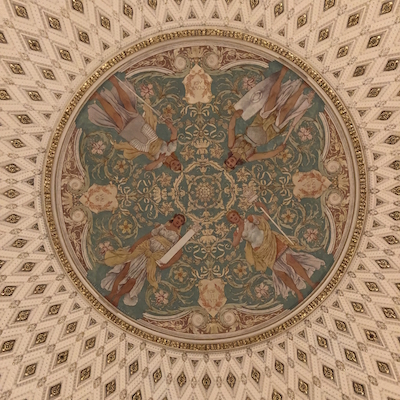
Free guided tours of the Library of Congress are offered multiple times a day Monday through Saturday. These one hour tours provide a brief overview of the history of the library and the work it does. However, the tours can be a bit crowded, and the guides don’t offer much more information than is available in the self-guided tour brochure available at the information desks. I recommend grabbing a guide in one of 12 languages, and spending an hour on your own exploring what some say is the most beautiful building in America.
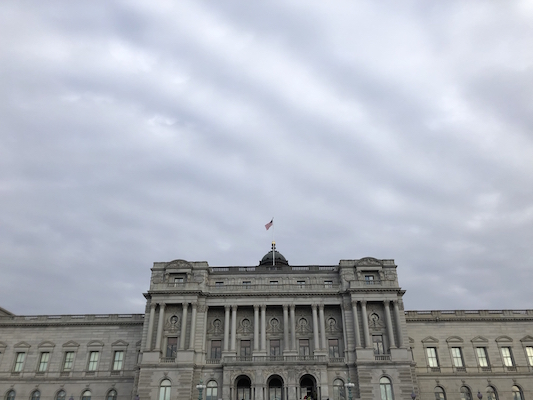
Like this adventure? Subscribe to the newsletter to get updates with the latest adventures on the blog, ideas for things to do in DC, and tips for exploring the District.
Address
10 First Street SE
Metro Station
- Capitol South (OR, BL, SV)
- Union Station (RD)
Directions
The main entrance is on First Street SE at the top of the stone staircase.
Cost
Free
Hours
Monday to Saturday from 8:30 am – 4:30 pm. Closed on Sunday.
Guided tours Monday through Friday at the following times:
- 10:30 am
- 11:30 am
- 12:30 pm
- 1:30 pm
- 2:30 pm
- 3:30 pm
Guided tours on Saturday at the following times:
- 10:30 am
- 11:30 am
- 1:30 pm
- 2:30 pm
Length of Adventure
1 hour
